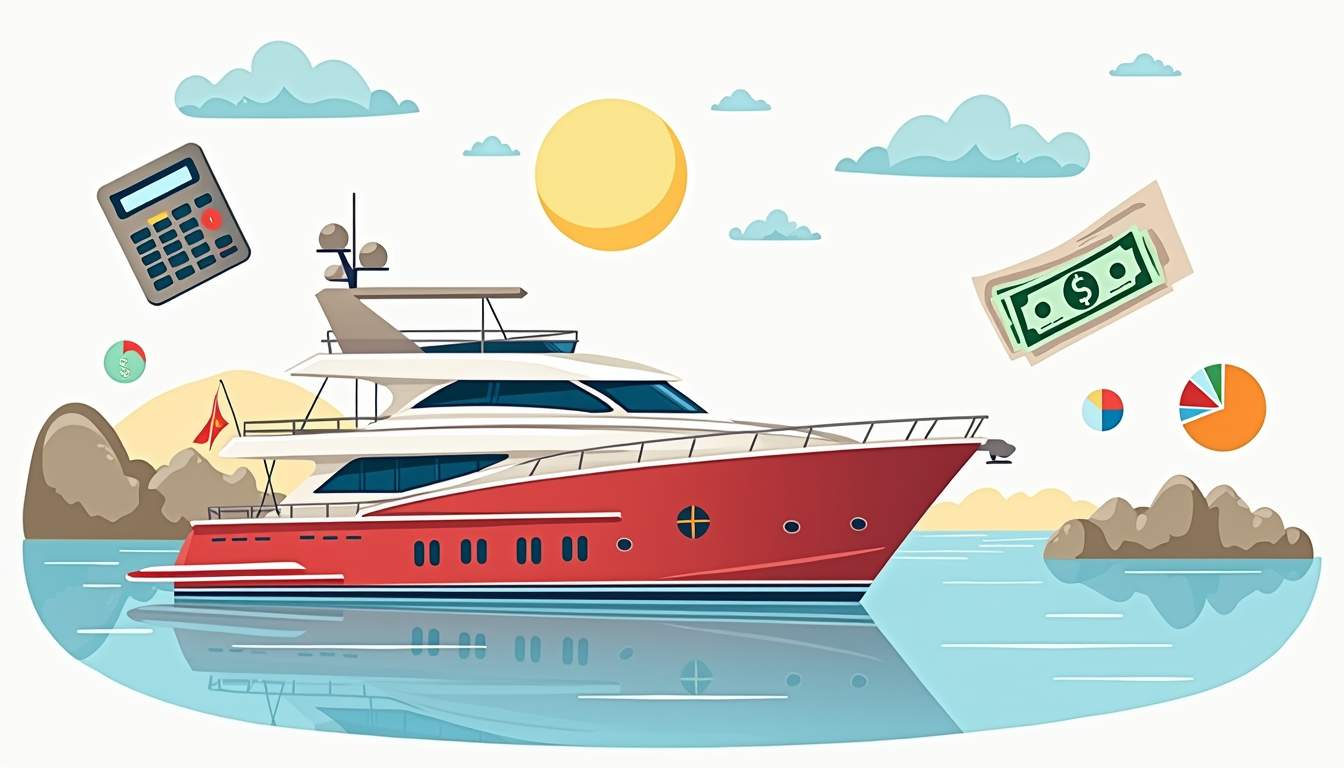
What is a yacht broker's salary?
Yacht brokerage is a specialized field within the maritime industry that combines sales, customer service, and an in-depth knowledge of yachts and boating. As with many professions, understanding the salary of a yacht broker can help potential entrants gauge their earning potential. This article will delve into the role of a yacht broker, the factors affecting their salary, and what one can expect at various levels of experience.
Understanding the Role of a Yacht Broker
A yacht broker serves as an intermediary between sellers and buyers of yachts. They are responsible for facilitating the sale and purchase processes while ensuring that both parties are satisfied with the transaction. Their job requires not only a keen understanding of the maritime market but also excellent interpersonal skills.
The role encompasses a wide range of duties, and successful yacht brokers often take on various responsibilities, including marketing listings, arranging viewings, and negotiating contracts. Given the high value of yachts, brokers need to be knowledgeable about both the inventory they are selling and the specific needs of their clients. This knowledge extends beyond just the technical specifications of the yachts; it also includes an awareness of current market trends, seasonal variations in demand, and the unique preferences of different clientele, from first-time buyers to seasoned yacht owners looking to upgrade.
Key Responsibilities of a Yacht Broker
Some essential responsibilities of a yacht broker include:
- Identifying and acquiring yachts for sale.
- Listing yachts on various platforms and marketing them effectively.
- Assisting clients in understanding the features and benefits of different yachts.
- Conducting negotiations between buyers and sellers.
- Facilitating sea trials and inspections as part of the purchasing process.
- Providing after-sale support to ensure client satisfaction.
Each of these tasks not only requires knowledge of yachting but also an ability to build relationships, manage expectations, and oversee financial transactions with integrity. Furthermore, a yacht broker often acts as a trusted advisor, guiding clients through the complexities of yacht ownership, which can include maintenance considerations, crew management, and even chartering opportunities. This advisory role is crucial, as many clients may be making significant investments and require expert guidance to navigate the intricacies of yacht management.
Required Skills and Qualifications for a Yacht Broker
To succeed as a yacht broker, a combination of skills and qualifications is necessary:
- In-depth knowledge of the boating and yachting industry.
- Strong sales and negotiation skills.
- Excellent communication abilities, both verbal and written.
- Experience with marine documentation and regulations.
- Customer service orientation to ensure client satisfaction.
While formal education is not a strict requirement, many yacht brokers possess degrees in marine business, finance, or related fields. Additionally, on-the-job training and mentorship can be immensely valuable for newcomers. Networking within the industry is also essential, as building relationships with yacht manufacturers, service providers, and other brokers can lead to valuable referrals and insights. Brokers often attend boat shows and industry events to stay updated on the latest trends and innovations, further enhancing their expertise and credibility in the eyes of their clients.
Factors Influencing a Yacht Broker's Salary
The salary of a yacht broker can be influenced by various factors, which can vary greatly depending on experience, geographical location, and market conditions. Understanding these factors will provide insights into the potential earnings in this field.
Experience and Expertise
As in many professions, a yacht broker's income often correlates with their level of experience. Entry-level brokers, who are still acclimating to the market and developing relationships, tend to start at lower salary levels. Over time, with increased expertise, strong sales performance, and a solid client base, brokers can see significant increases in their earnings.
Senior-level yacht brokers with years of experience and established reputations can command much higher prices, reflecting their status in the industry and their track record of successful transactions.
Geographical Location
The geographic location where a yacht broker operates plays a crucial role in determining salary levels. Brokers in high-demand areas, such as Florida, California, or Monaco, often see higher earnings due to a greater concentration of luxury clients and high-value yachts.
In contrast, brokers in regions with a smaller boating community or lower demand may face more competitive pricing and, as a result, lower salaries. Market research is essential for understanding local conditions.
Size and Type of Yachts Sold
The size and type of yachts a broker specializes in can also impact their salary. Luxury yachts, superyachts, and catamarans typically sell for higher prices than smaller boats, leading to increased commissions for brokers who focus on these segments.
Moreover, the ability to sell a diverse portfolio of yachts can enhance a broker's brand and reputation in the marketplace, which in turn can lead to a wider network of clients and higher earnings.
Average Salary of a Yacht Broker
The average salary of a yacht broker can vary significantly based on several influencing factors. However, gaining a perspective on entry-level, mid-level, and senior-level salaries can provide a clearer picture.

Entry-Level Yacht Broker Salary
New entrants to the yacht brokerage profession generally start with a modest salary range, typically between $40,000 and $60,000 annually. Entry-level positions often include commission structures that can boost income significantly if sales targets are met.
While the beginning salary can be low, success in sales can quickly lead to higher earnings as brokers establish their networks and learn the market dynamics.
Mid-Level Yacht Broker Salary
Mid-level yacht brokers, with a few years of experience and a growing client base, can expect salaries in the range of $60,000 to $100,000. At this level, it becomes increasingly possible to build a reputation and consistent sales performance, thereby enhancing income through commissions.
These brokers may also start to handle more significant transactions and upscale yachts, contributing further to their overall earnings.
Senior-Level Yacht Broker Salary
Senior-level yacht brokers often enjoy salaries ranging from $100,000 to $250,000 or more, particularly if they specialize in high-end yacht sales. Established brokers with strong track records and excellent client relationships can earn substantial commissions, reflecting their experience and market knowledge.
The earnings at this level not only stem from direct sales but also from repeat clients and referrals, which can create a passive income stream over time.
Additional Earnings and Benefits
Beyond base salary, yacht brokers often enjoy additional earnings and benefits that can significantly enhance their overall compensation package. Understanding these options can make a difference in career satisfaction and income potential.
Commission Structures in Yacht Sales
One of the primary ways yacht brokers increase their earnings is through commission. Typically, brokers earn a percentage of the sale price of each yacht they broker, which can range from 5% to 10% or even higher for luxury vessels. This commission structure means that the more successful a broker is at closing deals, the more they earn.
Brokers who are adept at closing high-value sales can significantly leverage their commission to boost annual earnings, making it a lucrative aspect of the profession.
Bonuses and Incentives
In addition to commissions, many yacht brokerage firms offer bonuses for achieving certain sales targets or milestones. These can vary widely, but achieving high sales numbers can lead to substantial bonuses that further enhance income.
Incentives may also include trips, awards, or additional perks for reaching sales goals, motivating brokers to excel in their roles.
Benefits and Perks of Being a Yacht Broker
Beyond financial compensation, yacht brokers may enjoy various benefits that enhance their quality of life. These can include flexible working hours, opportunities to travel, and the ability to network with wealthy clients who share a passion for yachting.
Additionally, working in a niche field allows brokers to immerse themselves in maritime culture and participate in exciting events and boat shows, deepening both their professional and personal enjoyment of yachting.
In conclusion, understanding what affects a yacht broker's salary is crucial for anyone considering a career in this dynamic field. While the potential for high earnings exists, much depends on experience, expertise, location, and dedication to building relationships and closing deals. With the right approach and commitment, a career as a yacht broker can be both personally and financially rewarding.
Contact us for Yacht Rentals and Sales
Stay inspired
Be the first to get new yacht related content and updates. We won't spam you.
Contact Us
We will get back to you as soon as possible.
Please try again later.
